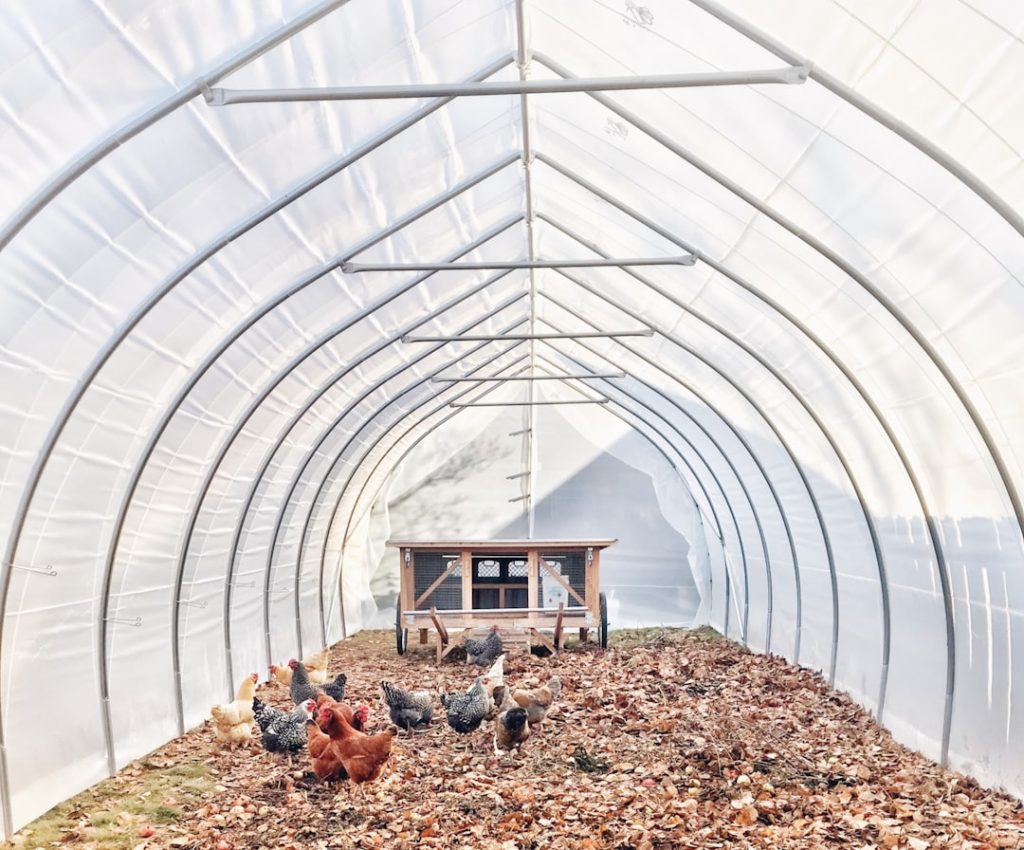Foxes are intelligent and adaptable predators known for their cunning nature. As natural hunters, they are attracted to small prey, including chickens. Understanding fox behavior is essential for protecting poultry from these predators.
Foxes are primarily nocturnal, being most active at night. They are territorial animals that mark their areas with urine and feces. Their ability to dig and climb makes them adept at accessing unsecured chicken coops.
Foxes possess acute senses of smell and hearing, which they utilize to locate prey. As opportunistic hunters, they will exploit any chance to secure a meal. This means they are naturally drawn to the scent and sounds of chickens.
Recognizing these characteristics is crucial when implementing security measures for chicken coops and surrounding areas. By comprehending fox behavior, poultry keepers can take effective preventive actions to safeguard their chickens from potential attacks.
Table of Contents
- 1 Securing the Chicken Coop
- 2 Using Deterrents
- 3 Keeping the Surrounding Area Clean
- 4 Installing Motion-Activated Lights or Alarms
- 5 Using Livestock Guardian Animals
- 6 Seeking Professional Help
- 7 FAQs
- 7.1 What are some effective methods for keeping foxes from killing chickens?
- 7.2 What type of fencing is best for keeping foxes out of a chicken coop?
- 7.3 How can motion-activated lights or sprinklers help deter foxes from attacking chickens?
- 7.4 Are there any natural deterrents that can help keep foxes away from chickens?
- 7.5 What role can guard animals, such as dogs, play in protecting chickens from foxes?
Key Takeaways
- Foxes are intelligent and adaptable animals with a natural instinct to hunt for food, including chickens.
- Securing the chicken coop with sturdy fencing and locks can help prevent foxes from gaining access to the chickens.
- Using deterrents such as motion-activated sprinklers or predator urine can help keep foxes away from the chicken coop.
- Keeping the surrounding area clean by removing any potential food sources can help discourage foxes from lingering around the coop.
- Installing motion-activated lights or alarms can startle foxes and deter them from approaching the chicken coop.
- Livestock guardian animals such as dogs or llamas can help protect chickens from foxes by keeping them at bay.
- Seeking professional help from wildlife experts or animal control agencies can provide additional support in dealing with fox-related issues.
Securing the Chicken Coop
Inspecting the Perimeter
Start by inspecting the perimeter of the coop for any potential entry points, such as gaps in the fencing or holes in the ground. These should be promptly repaired to prevent foxes from entering.
Deterrent Measures
Consider installing an apron fence around the perimeter of the coop to deter digging. An apron fence is a wire mesh that extends outward from the base of the coop, making it difficult for foxes to dig underneath.
Coop Construction and Maintenance
Another important aspect of securing the chicken coop is ensuring that the coop itself is sturdy and predator-proof. This includes using strong and durable materials for the construction of the coop, such as heavy-duty wire mesh and solid wood. Make sure that all doors and windows are securely latched and that there are no gaps or weak spots that could be exploited by foxes.
By taking these measures, you can significantly reduce the risk of fox attacks on your chickens.
Using Deterrents

In addition to securing the chicken coop, using deterrents can help discourage foxes from approaching your property. There are several effective deterrents that can be used to repel foxes and protect your chickens. One common deterrent is the use of predator urine, such as coyote or wolf urine, which can be applied around the perimeter of the coop to create a natural barrier.
The scent of predator urine can signal to foxes that there is a potential threat in the area, causing them to avoid it. Another effective deterrent is the use of motion-activated sprinklers or sound devices. These devices are triggered by motion and emit a burst of water or loud noise, startling and scaring away any approaching foxes.
This can be an effective way to deter foxes from getting too close to the chicken coop. Additionally, consider using visual deterrents such as scarecrows or reflective tape, which can create a sense of unease for foxes and discourage them from approaching.
Keeping the Surrounding Area Clean
Keeping the surrounding area clean is an important aspect of protecting your chickens from fox attacks. Foxes are attracted to areas with abundant food sources, so it’s important to keep the area around the chicken coop free of any potential attractants. This includes keeping garbage cans tightly sealed, removing fallen fruits or vegetables, and securing any pet food or bird feeders.
By eliminating potential food sources, you can reduce the likelihood of foxes being drawn to your property. It’s also important to keep the area around the chicken coop well-maintained and free of hiding spots for foxes. This includes trimming back overgrown vegetation, removing brush piles, and keeping the area well-lit.
By maintaining a clean and well-kept environment, you can reduce the likelihood of foxes finding shelter or cover near the chicken coop, making it less appealing for them to approach.
Installing Motion-Activated Lights or Alarms
Installing motion-activated lights or alarms can be an effective way to deter foxes from approaching your property and protect your chickens. Motion-activated lights are triggered by movement and can help illuminate the area around the chicken coop, making it less appealing for foxes to approach under the cover of darkness. This can help deter foxes from getting too close to the coop and reduce the risk of potential attacks.
Similarly, motion-activated alarms can startle and scare away any approaching foxes. These alarms emit a loud noise when triggered by motion, creating a sense of danger for foxes and causing them to retreat. By installing these types of deterrents, you can create a more secure environment for your chickens and reduce the likelihood of fox attacks.
Using Livestock Guardian Animals

How Livestock Guardian Animals Work
These animals are territorial and will actively patrol the area, keeping watch for any signs of danger. Their presence alone can be enough to discourage foxes from getting too close to the coop.
When using livestock guardian animals, it’s important to ensure that they are properly trained and socialized with the chickens. This will help prevent any potential conflicts between the guardian animals and the chickens while still providing effective protection against predators like foxes.
Adding an Extra Layer of Security
By utilizing livestock guardian animals, you can add an extra layer of security for your chickens and reduce the risk of potential attacks.
Seeking Professional Help
If you continue to experience issues with fox attacks despite taking proactive measures, it may be necessary to seek professional help. Wildlife experts or pest control professionals can provide valuable insight and assistance in dealing with fox problems. They can assess your property for potential vulnerabilities and provide recommendations for further securing the chicken coop and deterring foxes.
Additionally, professional help may involve implementing more advanced deterrents or trapping and relocating problem foxes. It’s important to work with professionals who have experience in dealing with wildlife management to ensure that any actions taken are humane and effective in protecting your chickens. In conclusion, protecting your chickens from fox attacks requires a combination of understanding fox behavior, securing the chicken coop, using deterrents, keeping the surrounding area clean, installing motion-activated lights or alarms, using livestock guardian animals, and seeking professional help when necessary.
By taking these proactive measures, you can create a safer environment for your chickens and reduce the risk of potential fox attacks.
If you’re looking for ways to protect your chickens from foxes, you may also be interested in learning about the benefits of using an A-frame chicken coop. This type of coop design can provide added security for your flock, making it more difficult for predators like foxes to access your chickens. Check out this article on A-Frame Chicken Coop to learn more about this innovative and protective coop design.
FAQs
What are some effective methods for keeping foxes from killing chickens?
Some effective methods for keeping foxes from killing chickens include using secure fencing, installing motion-activated lights or sprinklers, using guard animals such as dogs, and keeping chickens in a secure coop at night.
What type of fencing is best for keeping foxes out of a chicken coop?
The best type of fencing for keeping foxes out of a chicken coop is hardware cloth or welded wire fencing with small openings (no larger than 1 inch) that extends at least 18 inches below the ground and 6 feet above the ground.
How can motion-activated lights or sprinklers help deter foxes from attacking chickens?
Motion-activated lights or sprinklers can startle and deter foxes from approaching a chicken coop or run, as they are sensitive to sudden movements and unexpected stimuli.
Are there any natural deterrents that can help keep foxes away from chickens?
Some natural deterrents that can help keep foxes away from chickens include using strong-smelling substances like garlic or predator urine, as well as planting thorny bushes or creating noise disturbances near the coop.
What role can guard animals, such as dogs, play in protecting chickens from foxes?
Guard animals, such as dogs, can help protect chickens from foxes by patrolling the area, barking to alert the presence of predators, and potentially engaging in confrontations with foxes to protect the flock.
Meet Walter, the feathered-friend fanatic of Florida! Nestled in the sunshine state, Walter struts through life with his feathered companions, clucking his way to happiness. With a coop that’s fancier than a five-star hotel, he’s the Don Juan of the chicken world. When he’s not teaching his hens to do the cha-cha, you’ll find him in a heated debate with his prized rooster, Sir Clucks-a-Lot. Walter’s poultry passion is no yolk; he’s the sunny-side-up guy you never knew you needed in your flock of friends!







